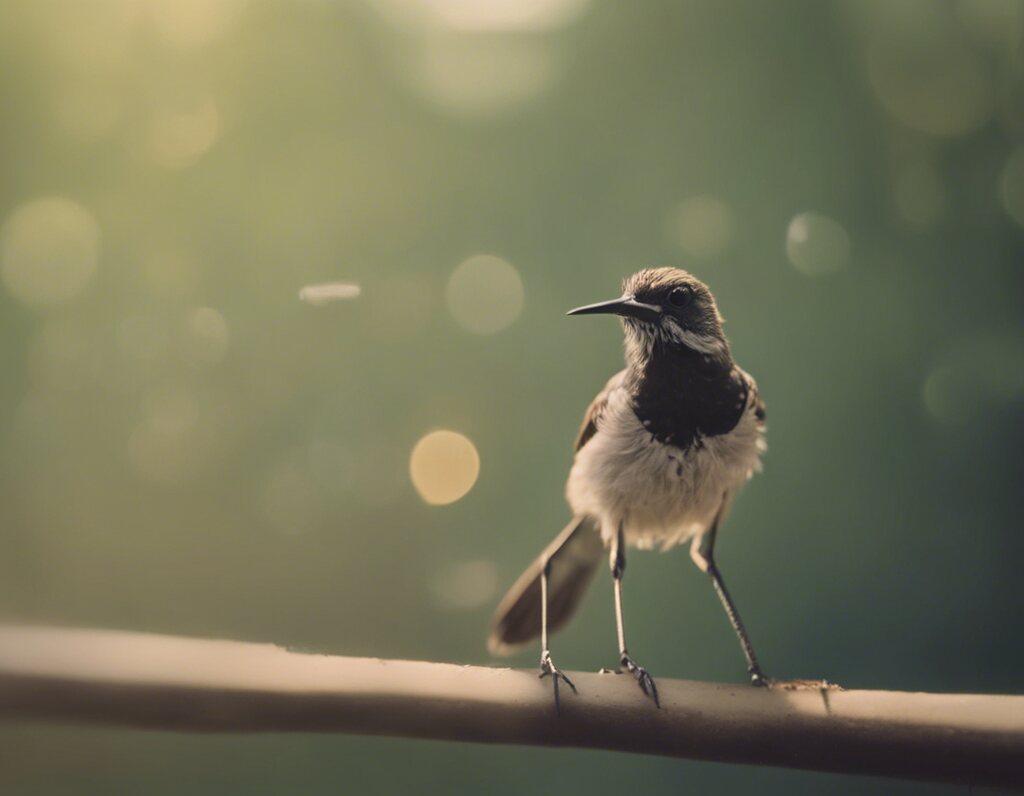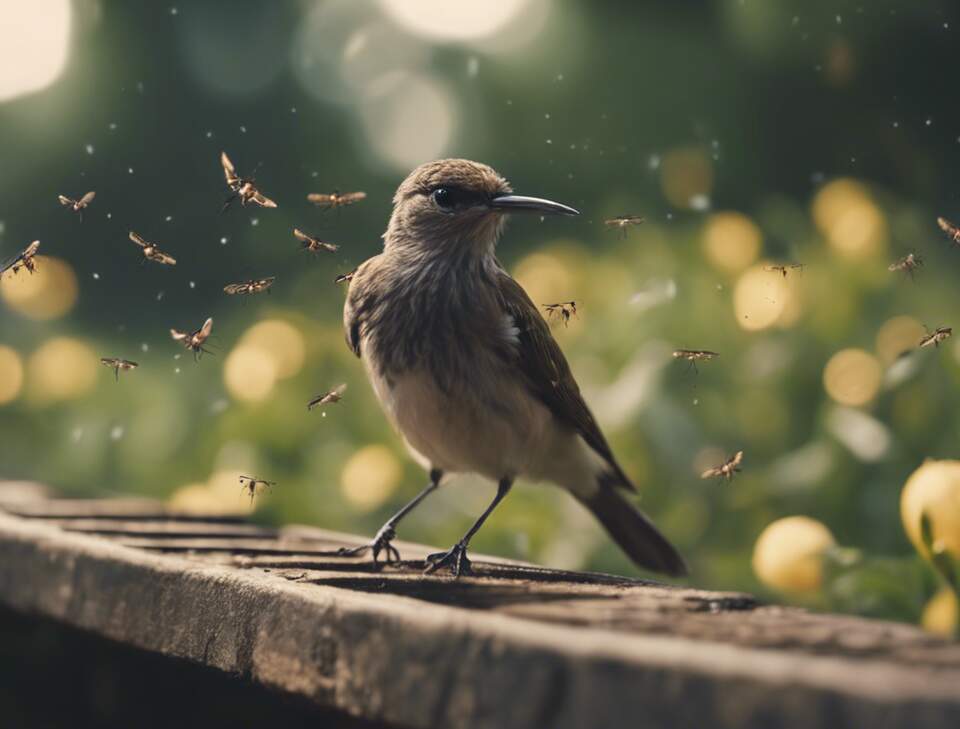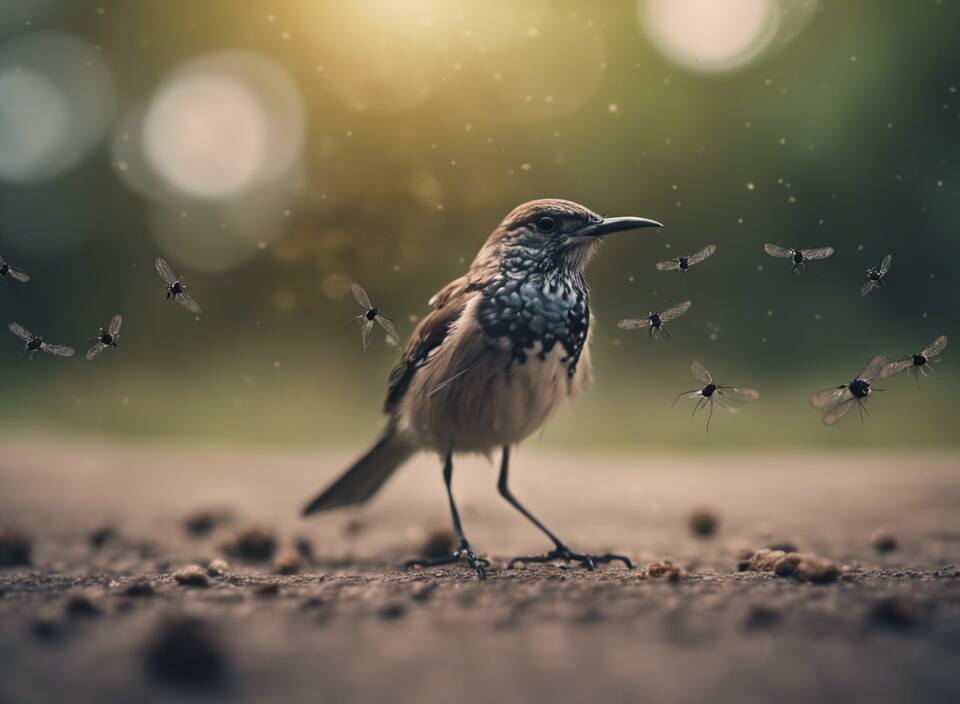Birds play a crucial role in controlling mosquito populations, serving as natural predators that help keep these pesky insects in check. Their diet includes various insects, with mosquitoes being a common and favored meal for many bird species. Understanding how birds impact mosquito populations is essential in maintaining a balanced ecosystem and reducing the prevalence of mosquito-borne diseases.
Table of Contents
The Role of Birds in Controlling Mosquito Populations
The Relationship Between Birds and Mosquitoes: A Natural Predator-Prey Dynamics
The interaction between birds and mosquitoes forms a classic example of predator-prey dynamics in nature. Mosquitoes serve as a food source for many bird species, especially insectivores like swallows, warblers, and purple martins. These birds actively hunt and consume mosquitoes, significantly impacting their population levels. By preying on mosquitoes, birds help control their numbers and prevent potential outbreaks.
Mosquito Predation Techniques by Birds
Birds employ various techniques to hunt and feed on mosquitoes effectively. Species such as Purple Martins are known for their aerial acrobatics, catching mosquitoes on the wing. Others, like robins and sparrows, forage for mosquito larvae in standing water sources, where mosquitoes breed. By targeting both adult mosquitoes and larvae, birds contribute to reducing the overall mosquito population.
Maintenance of Ecological Balance
The presence of birds in the ecosystem contributes to maintaining ecological balance. By controlling mosquito populations, birds help prevent these insects from becoming overabundant and causing disruptions to the environment. Excessive mosquito populations can lead to issues such as the spread of diseases like West Nile virus and Eastern equine encephalitis. Birds play a vital role in keeping mosquito numbers in check, ensuring a harmonious balance within the ecosystem.
Biodiversity and Habitat Conservation
Encouraging bird populations can have broader benefits for biodiversity and habitat conservation. Birds that feed on mosquitoes help reduce the need for chemical insecticides, which can have harmful effects on other wildlife and the environment. By promoting natural mosquito control through birds, conservation efforts can focus on preserving habitats and supporting diverse bird species that contribute to ecosystem health.
The Impact of Climate Change
Climate change can influence the dynamics between birds and mosquitoes. Rising temperatures and changing weather patterns may affect the breeding cycles of both birds and mosquitoes. Understanding these impacts is crucial for conservation efforts and managing mosquito populations in a shifting climate. Monitoring bird populations and their interactions with mosquitoes can provide valuable insights into ecosystem changes driven by climate change.
Birds play a significant role in controlling mosquito populations through predation and natural ecological processes. Understanding how birds impact mosquito populations is essential for ecosystem management and disease prevention. By supporting bird populations and conservation efforts, we can harness the natural predation abilities of birds to help maintain a balanced ecosystem and reduce the prevalence of mosquitoes and associated diseases.
Ecological Impact of Avian Predators on Insect Populations
Birds play a crucial role in maintaining the delicate balance of ecosystems by preying on various insects and pests. One of the most notable contributions of birds to the environment is their impact on mosquito populations. Mosquitoes are not only a nuisance to humans and animals but also carry diseases that can be harmful to both. This article delves into how birds affect the mosquito population and the ecological implications of their predation on these blood-sucking insects.
Importance of Avian Predators in Controlling Mosquito Populations
Birds, especially insectivorous species such as swallows, nighthawks, and purple martins, are natural predators of mosquitoes. These birds feed on adult mosquitoes, as well as their larvae and pupae, thereby helping to curb their population growth. By consuming large quantities of mosquitoes, birds assist in keeping their numbers in check, which is beneficial in reducing the spread of mosquito-borne illnesses.
Ecological Role of Birds in Mosquito Control
The predation of mosquitoes by birds not only benefits humans but also contributes to the overall health of ecosystems. Mosquitoes are known to be prolific breeders, especially in stagnant water bodies, and their larvae serve as a vital food source for many bird species. By preying on mosquitoes and their larvae, birds help in maintaining the natural balance within wetland and aquatic environments.
Impact on Disease Transmission
Mosquitoes are vectors for diseases such as West Nile virus, Zika virus, malaria, and dengue fever. By reducing the population of mosquitoes, birds play a crucial role in minimizing the transmission of these diseases to humans and other animals. This natural form of pest control provided by birds is an environmentally friendly way to mitigate the risks associated with mosquito-borne illnesses.
Bird Species and Mosquito Control
Certain bird species are particularly effective in controlling mosquito populations due to their feeding habits and foraging behavior. For example, purple martins are known to consume large numbers of mosquitoes, making them popular among backyard bird enthusiasts for their pest control benefits. Other species such as swallows and warblers also contribute significantly to keeping mosquito numbers in check.
Conservation and Habitat Management
Protecting bird populations and their habitats is essential for maintaining effective mosquito control in a given area. Deforestation, pollution, and habitat destruction can have adverse effects on bird populations, leading to an increase in mosquito numbers. Conservation efforts aimed at preserving bird species and their natural habitats can indirectly benefit human health by reducing the prevalence of mosquitoes and the diseases they carry.
Birds serve as valuable allies in the fight against mosquito-borne diseases through their predation on mosquito populations. By understanding the ecological impact of avian predators on insect populations, we can appreciate the interconnectedness of species within ecosystems. Promoting biodiversity and safeguarding bird habitats are integral components of sustainable mosquito control strategies that benefit both wildlife and human health.
Conclusion
Birds play a crucial role in controlling mosquito populations, acting as natural predators that help maintain a balance in the ecosystem. By consuming significant quantities of mosquitoes and their larvae, birds contribute to reducing the numbers of these disease-carrying pests. This natural form of pest control not only benefits humans by decreasing the risk of mosquito-borne diseases but also helps maintain the delicate balance of the environment.
The ecological impact of avian predators on insect populations, particularly mosquitoes, is profound. Birds such as swallows, purple martins, and bats are known for their remarkable ability to consume large numbers of mosquitoes. By including these avian predators in our ecosystem, we are promoting biological control methods that are sustainable and environmentally friendly. This not only reduces our reliance on chemical insecticides but also preserves the natural food chain dynamics that have evolved over centuries.
In essence, the presence of birds in our environment has far-reaching effects on mosquito populations and, by extension, on human health. By encouraging the presence of bird species that are efficient mosquito predators, we can harness the power of nature to manage pest populations in a safe and sustainable manner. This highlights the importance of preserving habitats that support diverse bird species and creating awareness about the valuable role birds play in maintaining ecological balance.
As we strive to find sustainable solutions to pest control and disease prevention, it is essential to consider the intricate connections between different species in the ecosystem. Birds are not just beautiful creatures that fill our skies with song; they are valuable allies in the fight against mosquitoes and the diseases they transmit. By understanding and appreciating the role of birds in controlling mosquito populations, we can work towards creating a healthier and more balanced environment for all living organisms.
Birds have a significant impact on mosquito populations through their predation activities. By consuming mosquitoes and their larvae, birds help reduce the numbers of these disease-carrying insects, contributing to a healthier ecosystem. Furthermore, the ecological role of avian predators in controlling insect populations, particularly mosquitoes, emphasizes the importance of preserving biodiversity and promoting natural pest control methods.
By recognizing and supporting the role of birds in maintaining ecological balance, we can create a more sustainable and harmonious environment for both wildlife and humans.




